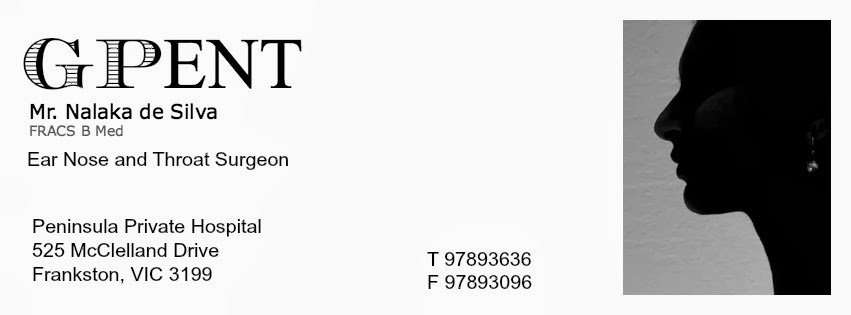Please note that the following is a general guideline only. For a full assessment, exclusion of any other underlying cause for your symptoms and an individualised treatment approach, you will need to be seen by a qualified specialist.
DEFINITION
Snoring: In adults snoring is a social condition, rather than a medical condition. It consists of significant upper airway noise during sleep, with no effect on the quality of sleep. Usually patients wake up refreshed, not tired.
Sleep Apnoea: This on the other hand,consists of upper airway noise as well as sleep disturbance due to collapse of the airway during the relaxed states of sleep. Often there will be many documented episodes of “apnoeas” or breathing cessation noted by their partner. Patients usually wake up unrefreshed with significant day time tiredness.
Snoring In children: Significant snoring in children has an effect on their growth and development, even if there are no documented apnoea episodes. Therefore snoring in children is not a social condition, it’s a medical condition.
HOW IS IS YOUR CONDITION DIAGNOSED?
This will involve your doctor asking for details of noted of cessation of breathing at night, snoring as well as the details of daytime tiredness. You will be also asked about certain associated medical conditions and social habits. Your doctor will have reasonable idea of the severity of your condition by taking a specific history from you.
This will be followed by thorough examination. The doctor will check your BMI, facial bone structure, tonsil size and palate position. He will also determine the nasal patency as well as the degree of tongue collapse with endoscopy in clinic.
It is normal practice to obtain a sleep study prior to surgery for apnoea. However first step is to maximise your nasal breathing and the surgeon may discuss doing the sleep study after treating the nose. This will give more useful information with regards to the severity of you condition.
TREATMENT OPTIONS
Patients with a BMI over 35, do not do well with apnoea surgery. However they may benefit improving chances of non surgical intervention of apnoea (see below) . Also a good nasal airway and weight reduction is important.
1) MAXIMISING NASAL FUNCTION:
Prior to treatment of apnoea or snoring maximising the nasal function is important. Surgical options involve septoplasty, turbinoplasty (improve the nasal corridor) and in some patients sinus surgery (open the doorways to the rooms on the sides of the nasal corridor).
This is done first followed by a reassessment of sleep with a full sleep study.
2) APNOEA SURGERY
Surgery is successful in significantly improving sleep apnoea or improve use of a device up to over 70% of the patients by careful selection by your surgeon. Surgeon will always offer non surgical options to try first.
UPPP: Surgery involves removing tonsils and a procedure called UPPP to tighten the soft palate. Though this is traditionally known to be very sore, with use of low heat instruments such as the coblation, patient have a much improved post-operative recovery. UPPP is successful up to over 70% of the patients by careful selection by your surgeon.
UPPP: Surgery involves removing tonsils and a procedure called UPPP to tighten the soft palate. Though this is traditionally known to be very sore, with use of low heat instruments such as the coblation, patient have a much improved post-operative recovery.
Tongue base reduction: Those who have tongue base collapse, traditionally fail the above two steps alone. However recent studies reviewing tongue base reduction, with coblation have shown to improve symptoms of 70% of the patients overall.
There are other much more extensive surgical options, which are not routinely offered due to success of the above techniques and higher risk of those traditional operations.
The surgeon is the best qualified to discuss the details of surgery and risks verses benefit
3) NON SURGICAL TREATMENT
Apnoea and snoring can certainly be managed with use of CPAP machines, tongue splints. Your doctor will provide you with these options. Maximising nasal function in those who have nasal obstruction has proven to be an important step first step, prior to treating your condition with any method. Patients with a BMI of over 35 should undergo medical treatment, or lose weight prior to exploring surgical options

No comments:
Post a Comment